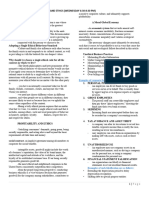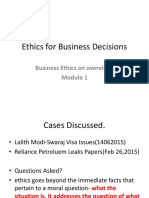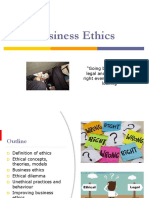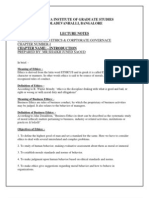0% found this document useful (0 votes)
21 views6 pagesBe Notes JKB Module 1
The document provides an overview of ethics, particularly focusing on business ethics, which applies moral principles to business decision-making. It outlines various types of ethics, including normative, descriptive, applied, professional, and meta ethics, and discusses the importance of a code of conduct in maintaining ethical standards in professions. Additionally, it highlights the significance of ethical behavior in business practices and the different codes of ethics specific to various fields.
Uploaded by
jkbhatia01Copyright
© © All Rights Reserved
We take content rights seriously. If you suspect this is your content, claim it here.
Available Formats
Download as DOCX, PDF, TXT or read online on Scribd
0% found this document useful (0 votes)
21 views6 pagesBe Notes JKB Module 1
The document provides an overview of ethics, particularly focusing on business ethics, which applies moral principles to business decision-making. It outlines various types of ethics, including normative, descriptive, applied, professional, and meta ethics, and discusses the importance of a code of conduct in maintaining ethical standards in professions. Additionally, it highlights the significance of ethical behavior in business practices and the different codes of ethics specific to various fields.
Uploaded by
jkbhatia01Copyright
© © All Rights Reserved
We take content rights seriously. If you suspect this is your content, claim it here.
Available Formats
Download as DOCX, PDF, TXT or read online on Scribd
/ 6























































































